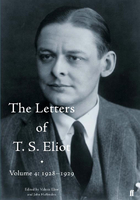The autumn drifted away through all its seasons; the golden corn- harvest, the walks through the stubble fields, and rambles into hazel- copses in search of nuts; the stripping of the apple-orchards of their ruddy fruit, amid the joyous cries and shouts of watching children; and the gorgeous tulip-like colouring of the later time had now come on with the shortening days. There was comparative silence in the land, excepting for the distant shots and the whirr of the partridges as they rose up from the field.
Ever since Miss Browning's unlucky conversation things had been ajar in the Gibsons' house. Cynthia seemed to keep every one out at (mental) arm's-length; and particularly avoided any private talks with Molly. Mrs. Gibson, still cherishing a grudge against Miss Browning for her implied accusation of not looking enough after Molly, chose to exercise a most wearying supervision over the poor girl. It was, 'Where have you been, child?' 'Who did you see?' 'Who was that letter from?' 'Why were you so long out when you had only to go to so-and-so?' just as if Molly had really been detected in carrying on some underhand intercourse. She answered every question asked of her with the simple truthfulness of perfect innocence; but the inquiries (although she read their motive, and knew that they arose from no especial suspicion of her conduct, but only that Mrs Gibson might be able to say that she looked well after her stepdaughter), chafed her inexpressibly. Very often she did not go out at all, sooner than have to give a plan of her intended proceedings, when perhaps she had no plan at all, only thought of wandering out at her own sweet will, and of taking pleasure in the bright solemn fading of the year. It was a very heavy time for Molly,— zest and life had fled; and left so many of the old delights mere shells of seeming. She thought it was that her youth had fled; at nineteen! Cynthia was no longer the same, somehow; and perhaps Cynthia's change would injure her in the distant Roger's opinion. Her stepmother seemed almost kind in comparison with Cynthia's withdrawal of her heart; Mrs. Gibson worried her to be sure, with all these forms of watching over her; but in all her other ways, she, at any rate, was the same. Yet Cynthia herself, seemed anxious and care-worn, though she would not speak of her anxieties to Molly. And then the poor girl in her goodness would blame herself for feeling Cynthia's change of manner; for as Molly said to herself, 'If it is hard work for me to help always fretting after Roger, and wondering where he is, and how he is; what must it be for her?'
One day Mr. Gibson came in, bright and swift.
'Molly,' said he, 'where's Cynthia?'
'Gone out to do some errands—'
'Well, it's a pity—but never mind. Put on your bonnet and cloak as fast as you can. I've had to borrow old Simpson's dogcart,—there would have been room both for you and Cynthia; but as it is, you must walk back alone. I'll drive you as far on the Barford Road as I can, and then you must jump down. I can't take you on to Broadhurst's, I may be kept there for hours.'
Mrs. Gibson was out of the room; out of the house it might be, for all Molly cared, now she had her father's leave and command. Her bonnet and cloak were on in two minutes, and she was sitting by her father's side, the back scat shut up, and the light weight going swiftly and merrily bumping over the stone-paved lanes.
'Oh, this is charming,' said Molly, after a toss-up on her seat from a tremendous bump.
'For youth, but not for crabbed age,' said Mr. Gibson. 'My bones are getting rheumatic, and would rather go smoothly over macadamized streets.'
'That's treason to this lovely view and this fine pure air, papa. Only I don't believe you.'
'Thank you. As you are so complimentary, I think I shall put you down at the foot of this hill; we have passed the second milestone from Hollingford.'
'Oh, let me just go up to the top! I know we can see the blue range of the Malverns from it, and Dorrimer Hall among the woods; the horse will want a minute's rest, and then I will get down without a word.'
So she went up to the top of the hill; and there they sate still a minute or two, enjoying the view, without much speaking. The woods were golden, the old house of purple-red brick, with its twisted chimneys, rose up from among them facing on to green lawns, and a placid lake; beyond again were the Malvern Hills!
'Now jump down, lassie, and make the best of your way home before it gets dark. You'll find the cut over Croston Heath shorter than the road we've come by.'
To get to Croston Heath, Molly had to go down a narrow lane overshadowed by trees, with picturesque old cottages dotted here and there on the steep sandy banks; and then there came a small wood, and then there was a brook to be crossed on a plank-bridge, and up the steeper fields on the opposite side were cut steps in the turfy path, which ended, she was on Croston Heath, a wide-stretching common skirted by labourers' dwellings, past which a near road to Hollingford lay.
The loneliest part of the road was the first—the lane, the wood, the little bridge, and the clambering through the upland fields. But Molly cared little for loneliness. She went along the lane under the over- arching elm-branches, from which, here and there, a yellow leaf came floating down upon her very dress; past the last cottage where a little child had tumbled down the sloping bank, and was publishing the accident with frightened cries. Molly stooped to pick it up, and taking it in her arms in a manner which caused intense surprise to take the place of alarm in its little breast, she carried it up the rough flag steps towards the cottage which she supposed to be its home. The mother came running in from the garden behind the house, still holding the late damsons she had been gathering in her apron; but, on seeing her, the little creature held out its arms to go to her, and she dropped her damsons all about as she took it, and began to soothe it as it cried afresh, interspersing her lulling with thanks to Molly. She called her by her name; and on Molly asking the woman how she came to know it, she replied that she had been a servant of Mrs. Goodenough before her marriage, and so was 'bound to know Dr Gibson's daughter by sight.' After the exchange of two or three more words, Molly ran down into the lane, and pursued her way, stopping here and there to gather a nosegay of such leaves as struck her for their brilliant colouring. She entered the wood. As she turned a corner in the lonely path, she heard a passionate voice of distress; and in an instant she recognized Cynthia's tones. She stood still and looked around. There were some holly bushes shining out dark green in the midst of the amber and scarlet foliage. If any one was there, it must be behind these thick bushes. So Molly left the path, and went straight, plunging through the brown tangled growth of ferns and underwood, and turned the holly bushes. There stood Mr. Preston and Cynthia; he holding her hands tight, each looking as if just silenced in some vehement talk by the rustle of Molly's footsteps.
For an instant no one spoke. Then Cynthia said—,
'Oh, Molly, Molly, come and judge between us!'
Mr. Preston let go Cynthia's hands slowly, with a look that was more of a sneer than a smile; and yet he, too, had been strongly agitated, whatever was the subject in dispute. Molly came forwards and took Cynthia's arm, her eyes steadily fixed on Mr. Preston's face. It was fine to see the fearlessness of her perfect innocence. He could not bear her look, and said to Cynthia,—
'The subject of our conversation does not well admit of a third person's presence. As Miss Gibson seems to wish for your company now, I must beg you to fix some other time and place where we can finish our discussion.'
'I will go if Cynthia wishes me,' said Molly.
'No, no; stay—I want you to stay—I want you to hear it all—I wish I had told you sooner.'
'You mean that you regret that she has not been made aware of our engagement—that you promised long ago to be my wife. Pray remember that it was you who made me promise secrecy, not I you?'
'I don't believe him, Cynthia. Don't, don't cry if you can help it; I don't believe him.'
'Cynthia,' said he, suddenly changing his tone to fervid tenderness, 'pray, pray do not go on so; you can't think how it distresses me.' He stepped forwards to try and take her hand and soothe her; but she shrank away from him, and sobbed the more irrepressibly. She felt Molly's presence so much to be a protection that now she dared to let herself go, and to weaken herself by giving way to her emotion.
'Go away!' said Molly. 'Don't you see you make her worse?' But he did not stir; he was looking at Cynthia so intently that he did not seem even to hear her. 'Go,' said Molly, vehemently, 'if it really distresses you to see her cry. Don't you see, it's you who are the cause of it?'
'I will go if Cynthia tells me,' said he at length.
'Oh, Molly, I do not know what to do,' said Cynthia, taking down her hands from her tear-stained face, and appealing to Molly, and sobbing worse than ever; in fact, she became hysterical, and though she tried to speak coherently, no intelligible words would come.
'Run to that cottage in the trees, and fetch her a cup of water,' said Molly. He hesitated a little.
'Why don't you go?' said Molly, impatiently.
'I have not done speaking to her; you will not leave before I come back?'
'No. Don't you see she can't move in this state?'
He went quickly, if reluctantly.
Cynthia was some time before she could check her sobs enough to speak. At length, she said,—
'Molly, I do hate him!'
'But what did he mean by saying you were engaged to him? Don't cry, dear, but tell me; if I can help you I will, but I can't imagine what it all really is.'
'It is too long a story to tell now, and I'm not strong enough. Look! he is coming back. As soon as I can, let us get home.'
'With all my heart,' said Molly.
He brought the water, and Cynthia drank, and was restored to calmness.
'Now,' said Molly, 'we had better go home as fast as you can manage it; it is getting dark quickly.'
If she hoped to carry Cynthia off so easily, she was mistaken. Mr Preston was resolute on this point. He said,—
'I think since Miss Gibson has made herself acquainted with this much, we had better let her know the whole truth—that you are engaged to marry me as soon as you are twenty; otherwise your being here with me, and by appointment too, may appear strange, even equivocal to her.'
'As I know that Cynthia is engaged to—another man, you can hardly expect me to believe what you say, Mr. Preston.'
'Oh, Molly,' said Cynthia, trembling all over, but trying to be calm, 'I am not engaged, neither to the person you mean, nor to Mr Preston.'
Mr. Preston forced a smile. 'I think I have some letters that would convince Miss Gibson of the truth of what I have said; and which will convince Mr. Osborne Hamley, if necessary—I conclude it is to him she is alluding.'
'I am quite puzzled by you both,' said Molly. 'The only thing I do know is, that we ought not to be standing here at this time of evening, and that Cynthia and I shall go home directly. If you want to talk to Miss Kirkpatrick, Mr. Preston, why don't you come to my father's house, and ask to see her openly, and like a gentleman.'
'I am perfectly willing,' said he; 'I shall only be too glad to explain to Mr. Gibson on what terms I stand in relation to her. If I have not done it sooner, it is because I have yielded to her wishes.'
'Pray, pray don't. Molly—you don't know all—you don't know anything about it; you mean well and kindly, I know, but you are only making mischief. I am quite well enough to walk, do let us go; I will tell you all about it when we are at home.' She took Molly's arm and tried to hasten her away; but Mr. Preston followed, talking as he walked by their side.
'I do not know what you will say at home; but can you deny that you are my promised wife? Can you deny that it has only been at your earnest request that I have kept the engagement secret so long?' He was unwise —Cynthia stopped, and turned at bay.
'Since you will have it out, since I must speak here, I own that what you say is literally true; that when I was a neglected girl of sixteen, you—whom I believed to be a friend, lent me money at my need, and made me give you a promise of marriage.'
'Made you!' said he, laying an emphasis on the first word.
Cynthia turned scarlet. '"Made" is not the right word, I confess. I liked you then—you were almost my only friend—and, if it had been a question of immediate marriage, I dare say I should never have objected. But I know you better now; and you have persecuted me so of late, that I tell you once for all (as I have told you before, till I am sick of the very words), that nothing shall ever make me marry you. Nothing. I see there's no chance of escaping exposure and, I dare say, losing my character, and I know losing all the few friends I have.'
'Never me,' said Molly, touched by the wailing tone of despair that Cynthia was falling into.
'It is hard,' said Mr. Preston. 'You may believe all the bad things you like about me, Cynthia, but I don't think you can doubt my real, passionate disinterested love for you.'
'I do doubt it,' said Cynthia, breaking out with fresh energy. 'Ah! when I think of the self-denying affection I have seen—I have known— affection that thought of others before itself—'
Mr. Preston broke in at the pause she made. She was afraid of revealing too much to him.
'You do not call it love which has been willing to wait for years—to be silent while silence was desired—to suffer jealousy and to bear neglect, relying on the solemn promise of a girl of sixteen—for "solemn" say "flimsy," when that girl grows older. Cynthia, I have loved you, and I do love you, and I won't give you up. If you will but keep your word, and marry me, I'll swear I'll make you love me in return.'
'Oh, I wish—I wish I'd never borrowed that unlucky money, it was the beginning of it all. Oh, Molly, I have saved and scrimped to repay it, and he won't take it now; I thought if I could but repay it, it would set me free.'
'You seem to imply you sold yourself for twenty pounds,' he said. They were nearly on the common now, close to the protection of the cottages, in very hearing of their inmates; if neither of the other two thought of this Molly did, and resolved in her mind to call in at one of them, and ask for the labourer's protection home; at any rate his presence must put a stop to this miserable altercation.
'I did not sell myself; I liked you then. But oh, how I do hate you now!' cried Cynthia, unable to contain her words.
He bowed and turned back, vanishing rapidly down the field staircase.' At any rate that was a relief. Yet the two girls hastened on, as if he was still pursuing them. Once, when Molly said something to Cynthia, the latter replied,—
'Molly, if you pity me—if you love me—don't say anything more just now. We shall have to look as if nothing had happened when we get home. Come to my room when we go upstairs to bed, and I will tell you all. I know you will blame me terribly, but I will tell you all.'
So Molly did not say another word till they reached home; and then, comparatively at ease, inasmuch as no one perceived how late was their return to the house, each of the girls went up into their separate rooms, to rest and calm themselves before dressing for the necessary family gathering at dinner. Molly felt as if she were 'so miserably shaken that she could not have gone down at all, if her own interests only were at stake. She sate by her dressing-table, holding her head in her hands, her candles unlighted, and the room in soft darkness, trying to still her beating heart, and to recall all she had heard, and what would be its bearing on the lives of those whom she loved. Roger. Oh, Roger!—far away in mysterious darkness of distance—loving as he did (ah, that was love! That was the love to which Cynthia had referred, as worthy of the name!) and the object of his love claimed by another— false to one she must be! How could it be? What would he think and feel if ever he came to know it? It was of no use trying to imagine his pain—that could do no good. What lay before Molly was to try and extricate Cynthia, if she could help her by thought, or advice, or action; not to weaken herself by letting her fancy run into pictures of possible, probable suffering.
When she went into the drawing-room before dinner, she found Cynthia and her mother tete-a-tete. There were candles in the room, but they were not lighted, for the wood-fire blazed merrily if fitfully, and they were awaiting Mr. Gibson's return, which might be expected at any minute. Cynthia sate in the shade, so it was only by her sensitive ear that Molly could judge of her state of composure. Mrs. Gibson was telling some of her day's adventures—whom she had found at home in the calls she had been making; who had been out; and the small pieces of news she had heard. To Molly's quick sympathy Cynthia's voice sounded languid and weary, but she made all the proper replies, and expressed the proper interest at the right places, and Molly came to the rescue, chiming in, with an effort, it is true; but Mrs. Gibson was not one to notice slight shades or differences in manner. When Mr. Gibson returned, the relative positions of the parties were altered. It was Cynthia now who raised herself into liveliness, partly from a consciousness that he would have noticed any depression, and partly because, from her cradle to her grave, Cynthia was one of those natural coquettes, who instinctively bring out all their prettiest airs and graces in order to stand well with any man, young or old, who may happen to be present. She listened to his remarks and stories with all the sweet intentness of happier days, till Molly, silent and wondering, could hardly believe that the Cynthia before her was the same girl as she who was sobbing and crying as if her heart would break not two hours before. It is true she looked pale and heavy-eyed, but that was the only sign she gave of her past trouble, which yet must be a present care, thought Molly. After dinner, Mr. Gibson went out to his town patients; Mrs. Gibson subsided into her arm-chair, holding a sheet of The Times before her, behind which she took a quiet and lady-like doze. Cynthia had a book in one hand, with the other she shaded her eyes from the light. Molly alone could neither read, nor sleep, nor work. She sate in the seat in the bow-window; the blind was not drawn down, for there was no danger of their being overlooked. She gazed into the soft outer darkness, and found herself striving to discern the outlines of objects—the cottage at the end of the garden—the great beech-tree with the seat round it—the wire arches, up which the summer roses had clambered; each came out faint and dim against the dusky velvet of the atmosphere. Presently tea came, and there was the usual nightly bustle. The table was cleared, Mrs. Gibson roused herself, and made the same remark about dear papa that she had done at the same hour for weeks past. Cynthia too did not look different to usual. And yet what a hidden mystery did her calmness hide, thought Molly. At length came bed-time, and the accustomary little speeches. Both Molly and Cynthia went to their own rooms without exchanging a word. When Molly was in hers she had forgotten if she was to go to Cynthia, or Cynthia to come to her. She took off her gown and put on her dressing-gown, and stood and waited, and even sate down for a minute or two; but Cynthia did not come, so Molly went and knocked at the opposite door, which, to her surprise, she found shut. When she entered the room Cynthia sate by her dressing-table, just as she came up from the drawing-room. She had been leaning her head on her arms, and seemed almost to have forgotten the tryst she had made with Molly, for she looked up as if startled, and her face did seem full of worry and distress; in her solitude she made no more exertion, but gave way to thoughts of care.














